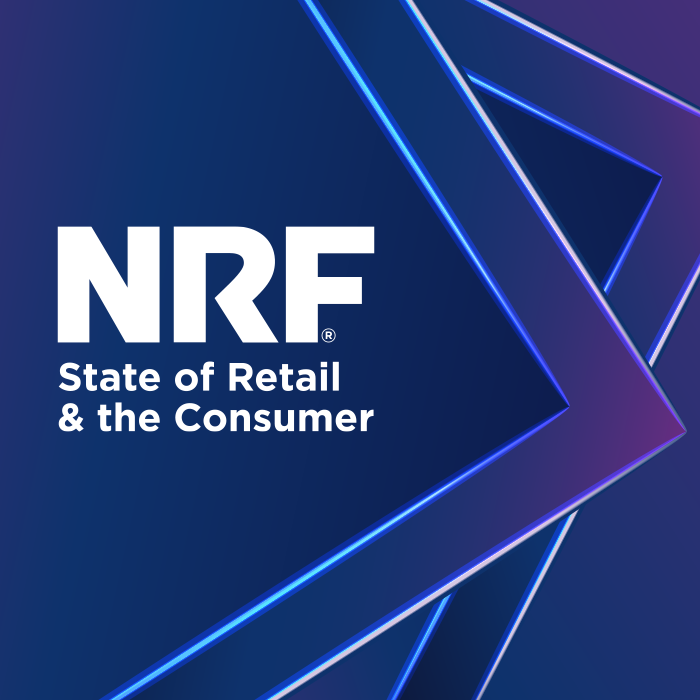Learn the truth about the Credit Card Competition Act
)
The banking industry will be in Washington, D.C., next week for its annual policy summit. Discussion points for the program may include topics such as how to grow its nearly 31% average profit margin (the highest of all U.S. industries) or how to deal with the numerous regulatory penalties levied against it.
The Credit Card Competition Act is certain to be on the agenda. The bill has clearly drawn the ire of the nation’s largest banks and payment networks, as they’ve spent $51 million to lobby against credit card reform. As they add more to that total when they take to Capitol Hill next week, U.S. businesses and consumers continue to feel the pain of a system that maximizes the profits of large financial institutions.
Swipe Fees
Fed up with unfair swipe fees? Learn more about the Credit Card Competition Act.
How will the CCCA help?
The CCCA is a pro-competition bill that finally addresses the failings of the U.S. credit card industry. The Visa and Mastercard duopoly have created a system that allows them to set swipe fee rates and lock out competitors through exclusivity contracts with large banks. That means large banks and Visa and Mastercard collect massive profits from merchants, thanks to the highest average swipe fee in the industrialized world.
In fact, credit card processing is typically the second highest cost for merchants. The growing and unabsorbable cost has forced merchants to pass some of the burden to their customers — to the tune of over $1,000 a year in higher prices for the average American family.
Competition has always been a key feature of the U.S. economy. Heightened competition among businesses has generally led to better prices, improved service and increased innovation.
Large banks and the payment network duopoly are fighting to preserve the status quo to protect their enormous profit margins, and they’re doing it by saying the sky will fall if the CCCA is passed. Their airport ads, TV commercials, podcast ads and more are littered with claims that the bill would be the end of credit card rewards programs — despite an abundance of evidence that says otherwise.
Will the CCCA end rewards programs?
Credit card rewards programs are marketing tools banks use to attract consumers to open a credit card with them over another bank. They’re one of the few ways banks compete in the credit card business. Rewards cards are an effective tool for banks because they incentivize increased spending, include annual fees and high interest rates, and come with a higher swipe fee rate for premium rewards cards. So why would the largest credit card issuers cut these programs if the CCCA were to pass?
Banks claim that a reduction in interchange revenue would be too costly to continue to fund rewards. They even enlisted The Points Guy — aka Brian Kelly — through a handsome compensation package to amplify their message.
Kelly is not your ordinary consumer who uses credit card points for vacations or other benefits; his close relationships with large banks have earned him over $50 million through paid promotions and partnerships. Kelly’s public opposition to the CCCA is a clear attempt to protect both his and his partner banks’ bottom line.
However, a look at the numbers and how credit card reform has taken place in other countries paints a different picture. The CCCA is estimated to save $15 billion a year in swipe fees. That’s a significant number for businesses and their customers, but it pales in comparison to the over $160 billion in swipe fees merchants pay to banks and networks annually.
Furthermore, a Lending Tree study found that in 2022, the six largest credit issuers netted nearly $32 billion after deducting rewards and partnership payments. Similar claims about the end of rewards were made when Europe and Australia underwent credit card reform, yet rewards still exist in those countries today.
Why do banks oppose the CCCA?
A federal court has also weighed in on the issue. Judge Margo K. Brodie from the U.S. District Court for the Eastern District of New York issued an opinion on an antitrust case against Visa and Mastercard that found banks would still have sufficient revenue to fund rewards programs even if swipe fees were lowered for merchants. Economic experts cited in the opinion stated that rewards expenses amount to less than half of interchange revenues and that it would still be profitable to keep rewards at the level they are now if merchant swipe fees were roughly half of what they are now.
Take action
Tell Congress to support the Credit Card Competition Act.
It’s no surprise that the nation’s largest credit card issuers and payment networks are fighting tooth and nail to keep Congress from passing the CCCA. The revenue generated from the credit card business has allowed for lucrative CEO raises and Visa and Mastercard to achieve profit margins of 53.92% and 44.6% respectively.
Meanwhile, businesses in a wide range of industries are left to navigate ever-increasing swipe fees that threaten their livelihood. American consumers and workers are also feeling the sting of this broken market. It’s time for Congress to choose Main Street over Wall Street by passing the Credit Card Competition Act.





